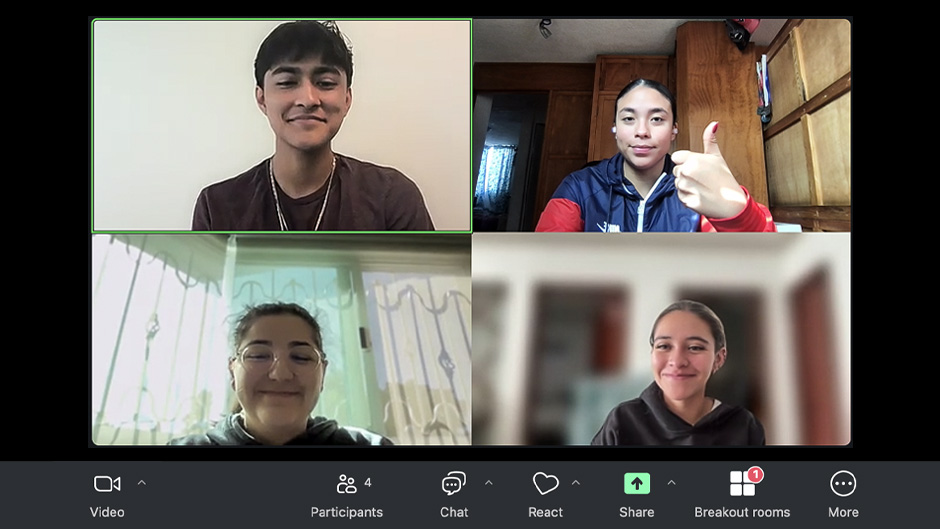When Mary Blinn signed up for a class called Global Challenges this semester, she wasn’t sure how she would be interacting with students in another country.
But twice during this semester, she and her 10 classmates got to virtually meet and work with students from Tecnológico de Monterrey in Mexico. One assignment paired Hurricanes with students from Mexico to explore the United Nations’ sustainable development goals and identify those that are the most pressing for Mexico City and Miami. As part of the project, Blinn helped make a video about her group’s chosen goals and how different eco-friendly interventions could be applied to Miami and Mexico City.
“It was interesting to talk about our differences in culture, and since they had experience from various parts of Mexico, we all compared the different levels of sustainability in the cities we had lived,” said Blinn, an international studies major who lived in Morocco and Germany as a child.
The course, taught by Dina Moulioukova, a senior lecturer in the Department of Geography and Sustainable Development who teaches international studies courses at the College of Arts and Sciences, is part of a new initiative across the University to incorporate elements of Collaborative Online International Learning (COIL) into courses. This means part of a course will require University students to work with students in a different country at another institution, said Miriam Lipsky, director of the Platform for Excellence in Teaching and Learning (PETAL).
“We live in a global society, so it’s important for students to have the experience of working with people from other countries and hearing their perspectives,” Lipsky added. “As students go out and pursue a career, there’s a high chance they will be working with people from other countries, so these experiences can help them see the relevance of what they are doing in class in a broader context.”
The larger COIL initiative was inspired by a recent example in 2020, when film associate professor of professional practice Ali Habashi designed a coproduction course with a faculty member at Fudan University in Shanghai, China, where the students created a film together. The world-renowned piece “Correspondence” was featured at the Sundance Film Festival.
Last spring, PETAL offered its first workshop in COIL for a cohort of about seven faculty members. They are offering it again this spring, and applications can be submitted until Friday. Faculty members who are accepted receive a stipend and meet about twice per month during Spring Semester.
Students in Moulioukova’s course enjoyed the opportunity to work with students in Mexico and were impressed by their ability to fuse shared content into one video presentation. Moulioukova got interested in working with Tecnológico de Monterrey when she visited the campus in 2022 and met international relations professor Luisa Parraguez, who she worked with on the course.
“This is such an easy way to really open yourself up to what students in other parts of the world think on a given issue,” Moulioukova said.
Teaching and Learning associate professor Matthew Deroo is looking forward to using COIL in his class this month. He will have his students, who are aspiring teachers, compare their own views of bilingualism in the United States with those of graduate education students in the Netherlands. Through the experience, Deroo hopes that both groups of students will gain insight about the challenges their bilingual students may be facing. After the class, Deroo plans to collaborate with his colleague, assistant professor Josh Prada, to see whether the international exchange experience was useful for his students and those at the University of Groningen.
“It’s important we begin to communicate across differences, and COIL gives you those skills to communicate with people who are different from you, whether it’s globally or in the U.S. context,” Deroo added.

